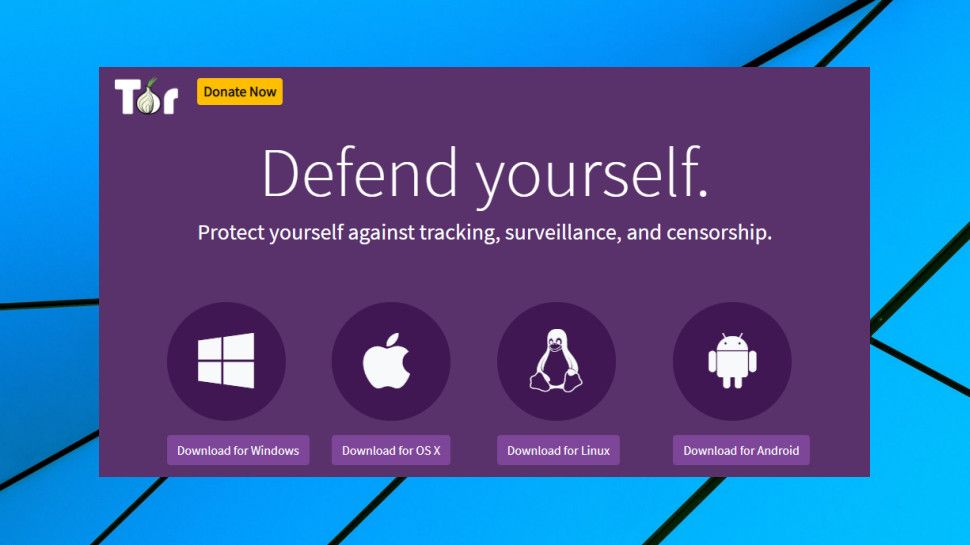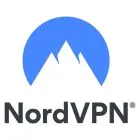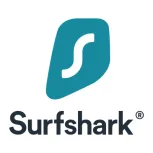How to unblock websites and banned web pages online from anywhere
It's probably easier than you imagined... with the right tool

One of the beautiful things about the internet is just how accessible it is. You can be anywhere in the world at any time of the day and still be able to email your friends, find the football results, discover delicious cupcake recipes, and find the best open café in your 200-metre vicinity.
But dig beneath the surface and the more you use the internet, the more you realise that there are actually a lot of areas that you can't access. From pure geo-restrictions that mean you have to be in a certain country to view a site, to localised TV broadcasts or sites that countries have flat-out banned, a tool to unblock websites is a useful thing to have on your laptop and phone.
That's where using one of the best VPNs comes in. It's affordable, versatile software that has crossed over from being a niche business tool to being widely used across the world to access banned web pages and getting around blocked services. Below we'll explain what they are, how to use them and which ones are best to help you unblock websites with ease.
Today's best 3 VPNs to unblock websites
1. ExpressVPN is the world's #1 overall VPN
ExpressVPN has proved time and time again in our testing how good it is across the board. When it comes to the combo of speed, security and service, nobody tops it. It's just so easy to use for unblocking websites on laptops and mobiles. And its 30-day risk trial means you can try it out for free.
2. NordVPN - the world's most famous VPN
Pushing ExpressVPN hard to our top spot is NordVPN. It plays an excellent security game and is also really easy to operate (although its Android app could do with a facelift). And there's loads of online and live chat support available if you hit a banned or blocked service that you just can't budge.
3. Surfshark - affordable VPN for unblocking sites
What Surfshark lacks in the odd feature, it really makes up for in price. It tops TechRadar's best cheap VPN list thanks to costs that come in at under $2.50 USD per month for those who don't mind committing.
How does a VPN help to unblock websites?
Virtual private networks work by channelling all of the internet traffic you receive through a secure VPN server. And they work whether that traffic flows through your computer, TV, streaming device, games console, or your phone using a mobile VPN app.
Not only does this make your internet use really secure - everything is strongly encrypted - but it also means you can effectively spoof the IP address of your device. Simply put, that means you can appear like you're in completely different zip code, city or country to the one you're actually in.
So if, for example, you're physically in China where loads of online services like Google, YouTube, Facebook, WhatsApp and many more are banned, you can use VPNs for China to virtually relocate yourself to a country where they're not.
The same method applies if, say, your school or office has cut access to social media and video sites. And this even extends to more far-reaching uses like watching Netflix content or live sports that are only available in other regions.
How to change location with a VPN and unblock websites
Believe it or not, it's really very straightforward to change location and IP address with a VPN:
- Find and download a reliable VPN – or simply head straight to ExpressVPN
- Install it on to your computer, mobile or other chosen device
- Once everything is ready, open the VPN application
- Log-in with your details, follow any welcome prompts, and you should soon be offered a list of VPNs to connect to
- Pick the country you want your computer to change to (so somewhere that the site is not blocked) and click the appropriate button
- Head to the blocked site. As your device now thinks it's somewhere that the service is allowed, you'll now discover that it is an unblocked website

Unblock websites: which sites and services can I unlock?
The short answer here is: pretty much any. In our experience, the best VPN providers out there have a very impressive hit rates when it comes to how they unblock websites.
Below is a far from exhaustive list of websites that are banned around the world or carry geo-restrictions.
When it comes to TV, films and sport, it's certainly a very common practice that coverage is blocked to specific regions - little wonder that Netflix VPNs and streaming VPNs have grown in popularity in recent years.. But some of the more surprising additions to the list are the kind of sites that the most censor-happy countries in the world ban or have banned.
- Amazon Prime Video
- BBC
- BBC iPlayer
- CNN
- Facebook (and Messenger)
- Gmail
- Google Apps (e.g. Calendar, Docs, Hangouts, Maps, etc)
- Hootsuite
- Hulu
- OneDrive
- Netflix
- New York Times
- Reuters
- Slack
- Snapchat
- Sling TV
- Spotify
- Twitch
- Wall Street Journal
- Wikipedia
- YouTube
Where am I most likely to want to unblock websites?
As we say, governments in some countries are less fond of internet freedoms than others. It's no great surprise that people using VPNs for China has grown massively, as its Communist ruling party have put bans in place on pretty much every site on the above list.
But China isn't alone in this, and if you're visiting any of the following countries any time soon, then we'd advise you to grab a VPN before you go:
What else can VPNs do aside from unblocking websites?
Rather a lot - they are really versatile pieces of kit and there are many VPN uses available
Their primary function really is as an extra layer of security for your online life. When turned on, all of your internet activity is encrypted and you're effectively completely anonymous. So if you don't like the idea of being tracked online, then they're probably a better fit than more traditional antivirus software. We think they're especially useful when you use public, insecure Wi-Fi.
It's a similar theme if you're somebody who uses a VPN for torrenting. A virtual private network is an essential piece of kit these days to ensure that your internet service provider - or anybody else for that matter - can't see if or what you're torrenting.
Some uses are a bit more niche. More and more people turn their VPNs on when shopping for flights and such. By not giving the site any clues as to your true IP address, you circumvent any targeted price increases.

Keeping VPNs on the DL
While a VPN remains an excellent way to unblock sites, bad actors like rogue governments know this too and take steps to try to restrict VPN use or block it altogether.
This is where obfuscation technology comes in. This works by giving you all the privacy benefits of a VPN but tries to disguise your traffic so those with access to your connection records will find it very difficult to detect you’re connected to a VPN in the first place.
If you’re worried about others using a VPN, you’ll be pleased to know that major providers have heard you.
ProtonVPN is one of the many services that has developed its very own stealth protocol, which is designed to make your VPN traffic look like regular HTTPS. VyprVPN also has developed the “Chameleon Protocol”, which not only disguises your traffic but uses “Smart IP” to cycle your connection between different servers, making it harder for bad actors to practise DPI (Deep Packet Inspection) of your data. In both cases these protocols are available at no extra charge to users.
Keep your SOCKS on
Although it’s only good news that VPN providers are taking steps to disguise your traffic, for people living in regimes which restrict or ban VPNs these may not be an option. The websites to download the VPN client themselves might be blocked. Users in less economically developed countries might also be unable to afford VPN subscription fees.
Free VPNs are also problematic, as it’s hard to trust they aren’t selling your data in order to keep the lights on. We’ve reviewed some of the best free VPN providers this year but use them at your own risk.
This is where SOCKS5 can be useful. It's a much more secure version of the SOCKS protocol, which allows you to connect more securely to a proxy server.
You can read more about the differences between a proxy and VPNs in our guide but for now it’s enough to know that when you connect to a SOCKS5 proxy, your IP address is disguised from the Internet in general. If the proxy server is located in another country, this is a great way to evade censorship, as you can access online services like the Wall Street Journal even if they’re banned in your home country.
This is usually a lot faster and cheaper to set up than a VPN, although it comes at a price. The SOCKS5 protocol doesn’t have any built-in way to encrypt your data, so anyone would access to your connection records could detect what you’ve been up to.
Mindful of this, Chinese developer codename “clowwindy” created the free and open source “Shadowsocks” protocol in 2012. It encrypts connections over SOCKS5 proxies as well as disguising your data to appear like regular SSL/TLS traffic. As this type of data is so common this makes it very difficult to detect that you’re concealing any data in the first place. This may have been the reason that the Chinese government “asked” clowwindy to remove the Shadowsocks code from Github in 2015, though others have carried on his work.
Whilst Shadowsocks remains very easy to set up and provides an excellent way to disguise your traffic, you have to configure each application you want to use with it e.g. your web browser and P2P software. VPNs on the other hand will connect securely to a server and protect all your traffic by default, so are a better choice for keeping your data safe.
Onto Tor
If you want to access restricted content quickly, easily and free of charge you can do worse than use Tor. This establishes an encrypted connection over a number of servers or ‘relays’ within its network. This conceals your IP address and encrypts your traffic, so it’s virtually impossible for anyone connected to the Tor network to know where you are or what you’re accessing.
Volunteers around the world also run ‘exit nodes’ which you can use to access the regular internet. As these are based in other countries you can usually access content such as Instagram in the same way as anyone else in that country.
Tor data packets are quite distinctive, so some countries like China have made efforts to block people using the software. You can reduce the chance of this happening by using a Tor Bridge. These are run by volunteers and help you connect to the Tor network without revealing to your ISP that you’re doing so.

If you do use the Tor Browser, remember that anonymity comes at a price. Routing data through multiple servers can seriously slow down your connection.
Some exit nodes are also run by bad actors who’ll try to harvest your personal information.
You can avoid this problem altogether by using only Tor ‘hidden services’, which use the .onion suffix. Many western news outlets can be accessed this way by the dark web such as BBC News (https://www.bbcnewsd73hkzno2ini43t4gblxvycyac5aw4gnv7t2rccijh7745uqd.onion/) and the New York Times (https://www.nytimesn7cgmftshazwhfgzm37qxb44r64ytbb2dj3x62d2lljsciiyd.onion/ )
If you have to access the regular internet via Tor exit nodes, you can also stay safe by encrypting your traffic. This can be as simple as using sites that support SSL and TLS (look for the padlock icon in your address bar).
Some VPN providers also host “Onion over VPN” servers, so you can use the Tor network whilst encrypting your traffic via a VPN. This not only shields the fact you’re using Tor but hides your IP address when you first connect to the dark net.
Unblocking overall
There are various ways to unblock restricted websites and apps around the world. Which one is best is entirely a matter for you.
VPNs offer some powerful privacy features but some websites and governments try to block them.
Proxy servers like those used via Shadowsocks make your activity almost impossible to detect but don't do much to encrypt it.
Tor will both encrypt your traffic and conceal your location but can be very slow, plus you need to be careful about ‘poisoned’ exit nodes.
Make sure to thoroughly research whatever provider you use so you fully understand pros and cons.
- Best business VPNs: Keep employees secure when connected
Sign up to the TechRadar Pro newsletter to get all the top news, opinion, features and guidance your business needs to succeed!
Adam was formerly the Content Director of Subscriptions and Services at Future, meaning that he oversaw many of the articles TechRadar produces about antivirus software, VPN, TV streaming, broadband and mobile phone contracts - from buying guides and deals news, to industry interest pieces and reviews. Adam has now dusted off his keyboard to write articles for the likes of TechRadar, T3 and Tom's Guide.



